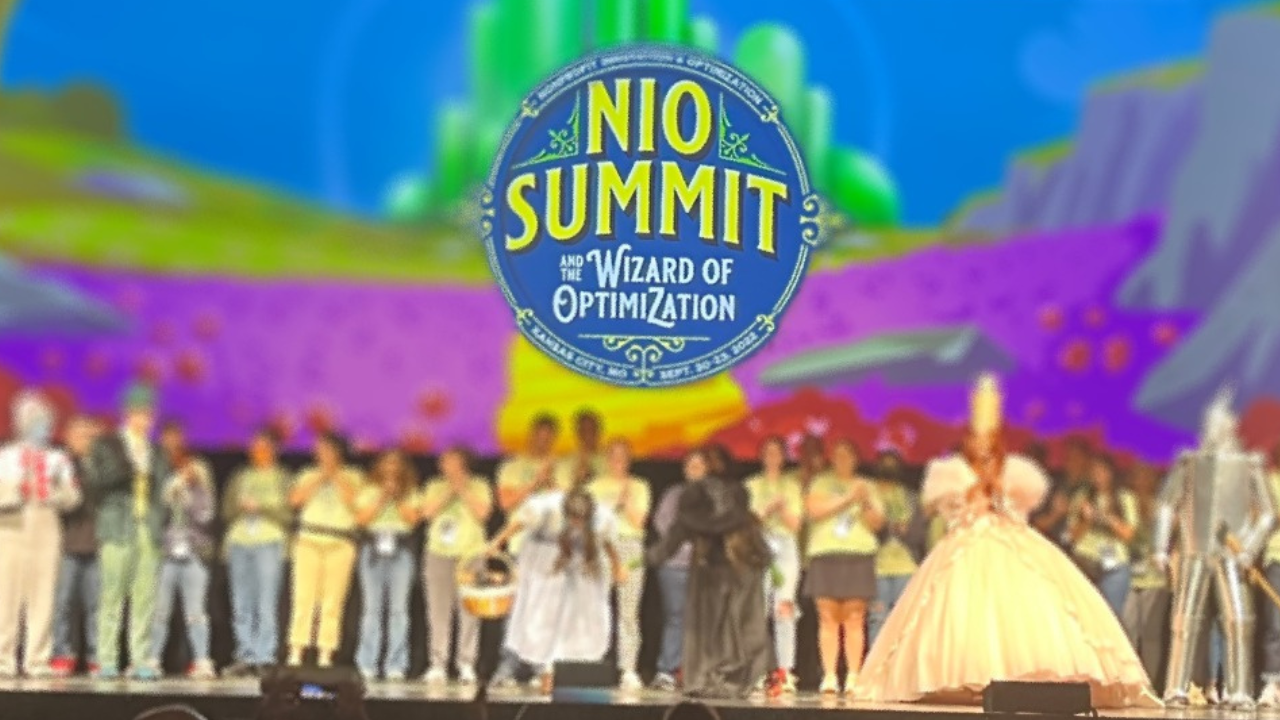What I Learned (and Didn't Learn) at the NIO Summit 2022

Last week, I attended NextAfter’s NIO (Nonprofit Innovation & Optimization) Summit for the first time. And as it turns out, all the hype leading up to the conference was justified - it was well run, informative, and FUN.
NIO isn’t like most conferences. For one, there are no breakouts. So, no hustling from room to room hoping you chose the best topic. Everyone gets the chance to hear every talk - and learn about topics they may never have chosen for themselves. Second, there’s a heavy emphasis on participation. Each activity is rewarded with swag tokens that can be traded for t-shirts, socks, mugs, and other cool items. (You’d better believe that I completed every game and trivia question at the pre-summit party at the College Basketball Experience and talked to (nearly) every vendor in the NIO exhibit hall. Because: free merch!)
Plus, all that participating made the overall experience better: I talked to more people and got more involved than I would have without the added motivation.
When it came to the substance of the summit, nearly every session was a win. There were more than 25 speakers and each provided helpful insights and information - but, of course, I had my favorites. Here are my top NIO Summit 2022 speaker takeaways:
Guys named Marcus really delivered at the summit. First, Marcus Sheridan, “the pool guy” and author of They Ask You Answer, was practically on his hands and knees urging nonprofits to establish a voice of trust, to be willing to talk about the things nobody else wants to talk about, and to show the things that others won’t show (where does the money go?). He reminded us that, while everyone believes their nonprofit is "different", donor tendencies are human tendencies and they are the same wherever we go. When considering whether to support you or not, prospective donors want to know:
- where the money goes and how it’s used
- what the problems are and how the org plans to solve them
- about other options or comparisons (why should I give to you?)
- reviews and recommendations - if not you, who do you recommend? Let them hear it from you.
Final thought: Who is the hero in your messages? HINT: It can’t be your organization.
The next Marcus, Dr. Marcus Collins, of Wieden + Kennedy-Kennedy New York, kept us limbically focused. That is, he emphasized the importance of appealing to the emotional center of our prospective donors' brains. He asserted that we can persuade people through THEIR passions and offered the following shifts we can make to attract more people to our organizations:
- Instead of being on brand, be on belief.
- Instead of staying on message, stay on value.
- Instead of being on strategy, be on conviction.
Final thought: Tap into a network of people who have the same convictions as you & they will share your brand.
Without any more Marcuses to tell you about, I’ll move on to Amy Harrison, from HarrisonAmy Copywriting, who reminded us that all relationships rely on effective communication. When it comes to writing to our audiences we have to be willing to try new things and avoid making assumptions about what readers know about us. It’s not enough to be enthusiastic, we must be descriptive in our writing, stay curious, and find ways to keep things creative. Harrison supplied this great creativity hack:
- think of a common theme for the organization
- list 25 positive associations with the theme
- list 25 negative associations with the theme
- use these lists to create story angles and subject lines
Final thought: Be a partner to your readers; show that you know what they care about and that you are in it together to make things happen.
And, perhaps the simplest yet most impactful message I heard delivered to fundraisers at the summit came from Jeff Giddens, NextAfter President, who said: the number one characteristic of successful fundraisers is humility. Not the overused “I am humbled and honored” attempt at humility we see on the socials. Rather, humility in its true sense: a type of reserve that allows us to step back and ask more questions, a nonresistance that encourages us to experiment, and the relief that comes when we realize that we don’t, in fact, know it all. Instead of trying to be "experts," fundraisers with humility can become seekers; and discover what’s really working for organizations right now.
Final thought: Humility means thinking of yourself (your org) less, saying “I don’t know,” and experimenting to find out how to inspire greater giving.
What I didn't learn at the summit (I'm happy to report) was all about the latest shiny objects. Exactly zero time was spent on floating far-fetched fundraising tools or the latest, greatest technological distraction. NIO was about connecting with empathy, making data-driven decisions, and trying your own new things. And in a nonprofit world that seems so lacking in the fundamentals, working on the basics never looked more innovative.



